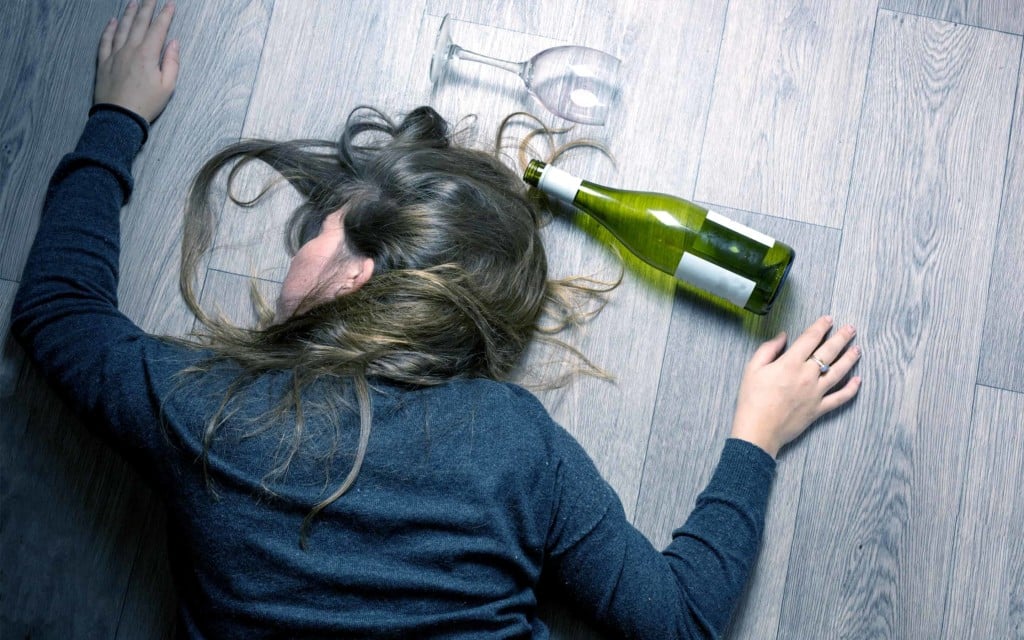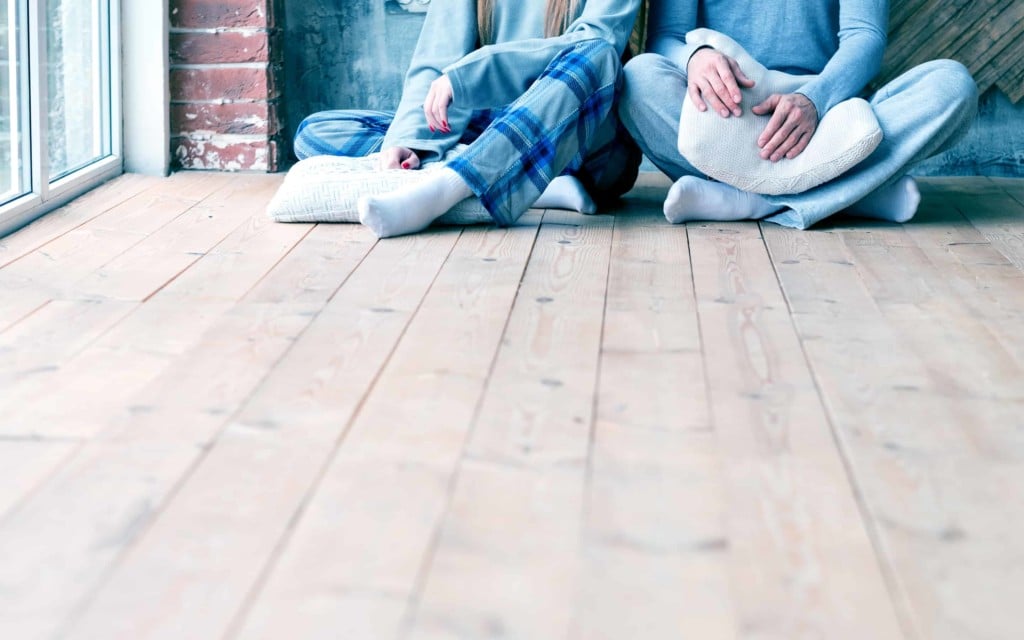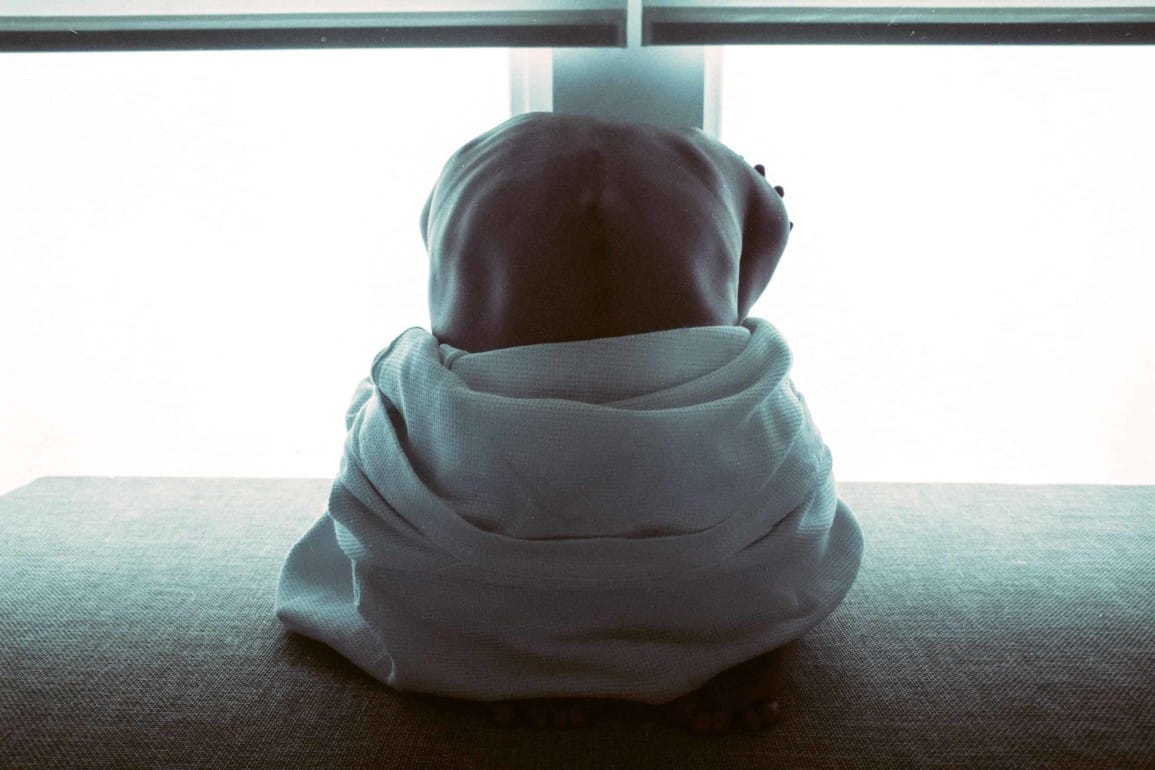According to a study conducted in 2017, 16 million adults in the UK are struggling with sleepless nights. 67% of adults have “disrupted sleep,” while another 31% say that they have some form of insomnia.
If that wasn’t worrisome enough, how about the fact that sleep deprivation costs the UK economy around £40 billion each year. Lost productivity and poor health caused by sleep problems are causing real issues for our society.
The problem isn’t just significant in the UK either. Sleep deprivation is a common issue in locations all around the world.
While some people seem to spend all their time boasting about how they can easily survive on less sleep than their peers — this is rarely the case. The truth is that even if you think you’re getting by with insomnia, you’re probably struggling with a reduced attention span, impaired immune system, and various other common problems.
So, what are the causes of sleep deprivation? Why is it so common for us to spend our nights tossing and turning, rather than counting sheep?
Let’s find out.

Understanding the causes of sleep deprivation
Sleep deprivation is a problem that occurs when you don’t get enough high-quality sleep each night to feel alert and rested. Crucially, it’s important to get not just the right amount of sleep, but the correct quality too.
While the National Sleep Foundation suggest that adults need an average of 7 to 9 hours each night, you’ll also need to make sure you’re moving through all of the correct stages of sleep too. If you’re dipping in and out of light sleep for 10 hours, then you’re still going to be exhausted the next day. Unfortunately, the dangers of sleep deprivation can come from a number of triggers.
For instance, some people have a hard time getting to sleep and staying asleep because they’re suffering from physical issues, like pain in their stomach caused by IBS, or an ulcer. Alternatively, other people can’t sleep because they’re too overwhelmed by anxiety and stress.
If you’re wondering what causes lack of sleep, the most common issues can be broken down into the following categories:
Physical or medical causes of sleep deprivation: Physical causes of sleep deprivation can be pain or discomfort that make it difficult for you to sleep. You might have a chronic illness that makes it difficult for you to get comfortable each night. Acute medical conditions like a cold or flu can also disrupt your sleeping patterns. Some people also suffer from medical issues directly related to sleep, like sleep apnea.
Psychiatric causes of sleep deprivation: Psychiatric sleep deprivation causes are usually linked to issues like depression, anxiety and stress. If you have problems with your thoughts and emotions, then you’ll find it harder to relax for sleep at night.
Some people even develop anxiety about sleeping. If you get yourself upset thinking about what’s going to happen if you don’t get to sleep on time each night, you’re less likely to get the rest you need.
Behavioural causes of sleep deprivation: Behavioural reasons for sleep deprivation can include things like drinking too much alcohol or caffeine before bed. You can also count things like working the night shift or constantly changing your work hours as a behavioural issue. Work and school commitments that force you to go against your usual sleep routine are also behavioural.
Environmental causes of sleep deprivation: Finally, one of the most common lack of sleep causes is that your environment just isn’t right for sleep. Your bedroom might be too warm, or you could have too many bright lights shining into your bedroom window. You might be kept awake by the sounds of traffic outside, or your partner is snoring.
Importantly, the causes of sleep deprivation can be both acute, and chronic. Issues like stress because you’re changing your job or moving to a new house is “acute”. The problem causing your lack of sleep is only temporary, although the effects on your sleeping patterns can be long-term.
On the other hand, medical issues like asthma or restless leg syndrome are chronic. You’ll need to adapt your sleep pattern to suit those conditions, or have them properly treated, so you can ensure you’re getting enough sleep.

The dangers of sleep deprivation: What can sleep deprivation cause?
Sleep deprivation causes can vary, branching from acute emotional responses to certain situations, to long-term chronic conditions. However, no matter what causes lack of sleep, the outcome is usually the same. You end up struggling with severe emotional and physical side-effects.
After all, the body needs sleep to survive. Whether you’re kept awake by sleep walking, or you just can’t slip off to dreamland at night, there are various downsides to not getting enough sleep.
So, what can sleep deprivation cause?
Well, most people agree that they don’t work as efficiently when they’re tired. However, not getting enough sleep can affect your brain in ways that go beyond hampering concentration.
According to an Italian study, sleep deprivation actually causes the brain cells to eat away at synapses in the brain. These cells, called astrocytes, are responsible for clearing away worn-out cells. Unfortunately, when your brain is suffering from sleep deprivation, your astrocytes go into overdrive, breaking down more connections than necessary.
Other studies into the dangers of sleep deprivation found that people who don’t get enough rest each night are more stressed and angry than their counterparts. This emotional reaction comes from the amygdala, the part of the brain responsible for emotions. When you don’t get enough sleep, the amygdala becomes up to 60% more active than usual. This means that you respond more aggressively to negative stimuli than usual.
Even the hippocampus, the memory centre of your brain, is affected by sleep deprivation. Just a single night of bad sleep is enough to make it extremely difficult for you to store and manage new pieces of information.
Here are some other quick answers to the question, “What does sleep deprivation cause?”:
Not getting enough sleep stops you from strengthening your immune system and creating more cytokines so you can fight off infection. This makes it harder to recover from an illness.
Sleep deprivation can result in an increased risk of respiratory diseases.
Sleeplessness affects hormone production. This could mean that you don’t get enough growth hormone when you’re a young child or teenager. You can also have problems with reduced testosterone if you’re a man or for women, a disturbed menstrual cycle.
Lack of sleep makes it more likely that you’ll have problems with your heart and blood pressure. When you don’t get enough sleep, it’s harder to control inflammation and blood sugar levels.
Not getting enough sleep affects body weight. The hormones, ghrelin and leptin are altered by your sleep. Sleep deprivation can also promote insulin release. This leads to increased fat storage and a greater risk of type 2 diabetes.

What are the main causes of sleep deprivation?
Clearly, the dangers of sleep deprivation are significant.
Lack of sleep is so horrific that it has actually been used as torture in the past.
While some people need medical or professional assistance to overcome sleep deprivation, others can recover from lack of sleep just by understanding what the main causes of sleep deprivation are.
Once you know what causes sleep deprivation, you can adjust your sleep hygiene strategy accordingly. So, let’s take a closer look at some of the most common reasons for sleep deprivation.
1. Medical sleep deprivation causes
There are various medical conditions that can cause problems with your sleep. Sometimes, the medical condition causes the insomnia. This is the case with things like sleep apnea. Other times, it’s the physical symptoms of your condition that makes it difficult to sleep.
Some examples of medical reasons for sleep deprivation include:
Nasal or respiratory conditions
Chronic pain
Neurological conditions
Asthma
COPD
Endocrine problems
Gastrointestinal problems (acid reflux)
Unfortunately, while the symptoms of a medical condition can very easily cause sleep deprivation, the medicines taken to address the issue, can be problematic too. There are many drugs available for the control of heart disease, high blood pressure and neurological conditions that cause insomnia as a side effect.
Additionally, lack of sleep causes can also be linked to underlying issues with insomnia. For instance, sleep apnea is a common issue linked to insomnia. If your airways become obstructed while you sleep, this can make it difficult to get the quality of rest that you need. People with sleep apnea tend to wake up frequently during the night.
Another of the most common causes of sleep deprivation that is linked to medical issues is restless leg syndrome. In this condition, the person has an uncomfortable need to move their legs. Staying asleep can be difficult when your brain is sending you impulses to move during the night.
2. Psychiatric sleep deprivation causes
The reasons for sleep deprivation don’t have to be linked to physical issues. There are many psychological issues that can make it harder for you to get the sleep you need. For instance, many people have anxiety and depression today. If your thoughts or feelings of insecurity or sadness are filling your mind when you’re going to bed, it’s hard to drift off.
Problems with anxiety and depression are some of the most common reasons why meditation is recommended for sleep issues.
Sometimes, it’s not even the thoughts or feelings that you have with anxiety or depression that make it difficult to sleep, but the symptoms of those conditions. Anxiety can cause physical symptoms like tension, sweating, and even heart palpitations.
Feelings of anxiety increase the levels of cortisol in your bloodstream. Cortisol is the hormone most commonly linked with stress. It is also the substance that tells the body clock in your mind that it’s time to be awake. Correct levels of cortisol produced by the brains adrenal cortex can serve as a measure of a healthy circadian rhythm.
Unfortunately, while anxiety, depression, and other common psychiatric conditions can all increase your chances of sleep deprivation, they’re also part of a dangerous cycle. The less you sleep, the more overactive the amygdala in your brain becomes. This means you become increasingly emotional and more susceptible to negative emotions because of your lack of sleep.
3. Behavioural and lifestyle sleep deprivation causes
Though nobody wants to be sleep-deprived, sometimes our behaviour can perpetuate our issues with sleep. For instance, if you’re the person who always agrees to swapping shifts, or you move between the day shift and night shift regularly, then you’re not going to get the regular sleep pattern you need for a high quality of sleep.
In addition, it’s common for many of us to choose to restrict our sleep for a variety of reasons. For instance, you might stay up to watch a movie or finish some work.
Common behavioural or lifestyle-based reasons for sleep deprivation include:
You take your work home with you in the evenings: If you don’t know how to shut off from work at night, then your mind isn’t going to be able to relax when the time comes to go to sleep.
You take naps during the day: Short naps can be helpful sometimes, but they’re generally not a good idea — particularly if you struggle with sleeping issues already. Naps make it harder to regulate your body clock.
You wake up and go to sleep at different times: If you constantly allow yourself to sleep in during the weekends, then you’re confusing your body and making it difficult to maintain a consistent sleep cycle.
You work shifts: If you’re never sure whether you’re going to be working or sleeping at night, you may struggle to convince your brain to shut down when you want it to.
You eat to late: If your body isn’t finished digesting your food, it might be difficult to be calm enough to sleep.
You choose to binge TV: The nervous system, and therefore the brain, will have a hard time relaxing and going to sleep right after an aggravating series marathon.
4. Environmental sleep deprivation causes
Finally, if you’re constantly struggling with sleep deprivation symptoms, the problem could be something to do with your environment. Although some people have the skill of being able to fall asleep wherever they are. Most of us need a comfortable, cool, and relaxing environment to help us drift off.
If you’re having a hard time getting to sleep each night, consider whether your environment or surroundings could be causing the problem. For instance, if you have a lot of light coming through your window each night, then it might be helpful to invest in some blackout curtains or blinds. If you live on a noisy street or with a snoring partner, consider buying a pair of earplugs.
Additionally, make sure that your mattress, pillows, and bedding are all comfortable according to your preferences. If you haven’t updated your mattress in years, then now could be the perfect time to take that step. Something as simple as the wrong bedding can make it impossible for you to get the sleep that you need.

Alcohol and sleep deprivation: The common connection
Now we come to the fifth most common answer for what causes sleep deprivation. Drinking alcohol is a behavioural or lifestyle choice, so it fits partially into the third point we made above. However, drinking alcohol can also become a medical or long-term condition over time.
For instance, if you can’t sleep because you’re anxious about starting a new job, then you might have a glass or two of wine before going to bed.
The alcohol will make you sleepy to begin with, but it also disrupts your sleep. This means that you continue to convince yourself that you need the drink to get the right amount of rest. Alcohol and sleep deprivation often go hand-in-hand.
While it’s true that alcohol can help to make you sleepy, there’s a lot of different things going on in your body and mind when you have a drink. The booze will initially act as a stimulant, flooding your mind with feelings of happiness caused by endorphins.
After a while, the buzz starts to wear off, and you get the sedative impact of alcohol, causing you to feel drowsy. The drowsiness created by alcohol has led a lot of people to believe that a night cap before bed is a good idea.
However, as modern science has probed deeper into the relationship between alcohol and sleep deprivation, we’ve discovered just how dangerous a drink can be.
One study conducted in 2013, which reviewed 27 other published studies into alcohol use and sleep, found that alcohol does reduce the time that it takes to fall asleep.
Additionally, alcohol can also increase the amount of deep sleep that you get during the first half of the evening. However, these benefits are offset by the sleep disturbances that you experience during the second half of the night. In the second half of the night, you suffer from more exhausting and disruptive sleep.
Another major issue that comes with using alcohol to manage your sleep problems, is that your body rapidly becomes more tolerant to the sedative properties of booze. The more you use drink to help you get to sleep each night, the more drinks you need to create the sedative effects. This means that you’re more likely to start binge drinking to get to sleep.
Some people even start drinking alcohol obsessively during the day, because they become dependent on the feeling that it gives them.

How to avoid sleep deprivation causes
Ultimately, the causes of sleep deprivation are vast and varied.
Researchers even suggest some of the most significant sleep deprivation causes could be linked to genetics. For instance, you might have an increased risk of being narcoleptic if people in your family have also had narcolepsy.
Additionally, as you get older, your risk of sleep disorders will increase too. A lot of scientists believe that problems with sleep are a typical part of ageing.
Ultimately, sleep issues are problems that are becoming more crucial for all of us. One study by the Sleep Cycle Group found that the average amount of sleep has reduced from 8 hours per night to just 6.8 hours a night around the world.
Not only that, but sleep deprivation has been responsible for causing some of the worst events in human history. The world’s worst nuclear explosion at Chernobyl happened when engineers were working shifts that lasted over 13 hours.
The National Highway Traffic Administration found that around 100,000 deaths caused by motoring accidents happen because of drivers suffering from fatigue and lack of sleep. Driving tired can be just as dangerous as driving drunk.
Unfortunately, a lot of people are beginning to believe that being able to survive on limited sleep is a good thing in today’s fast-paced world. When everyone is competing to be the best, sleeplessness is prized as something that should be pursued, rather than avoided.
However, the truth is that no-one can survive on constantly limited sleep. If you’re not getting the right amount of rest each night, you can’t be your most productive. What’s more, your risk of serious issues with your health increases drastically when you suffer from lack of sleep.
Check out our other articles on sleep deprivation to find out more about how you can reduce your exposure to the causes of sleep deprivation as much as possible. Remember, if you ever feel that you’re having trouble with a lack of sleep, your doctor will be able to provide you with custom guidance on what to do next.
Siestio. Sleep Matters.
Medical disclaimer
You must not rely on the information provided on our website as an alternative to medical advice from your doctor or other healthcare professionals. For more information read our full disclaimer here.







